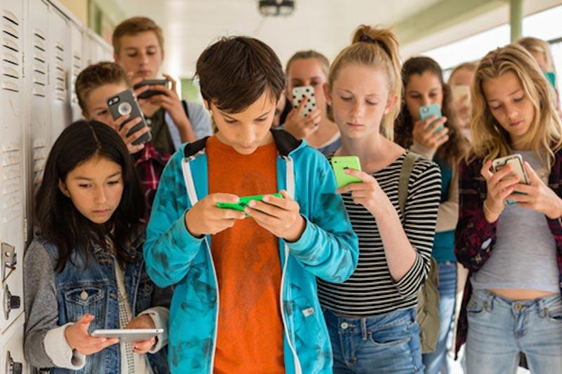Pornography
Most kids are watching porn–and most parents are in denial
A new report out by The Guardian reveals some disturbing but unsurprising things about porn consumption in the United Kingdom. A few excerpts are illustrative:
Parents are oblivious of the extent to which their children are watching pornography, according to a rare in-depth study of teenagers’ viewing habits that shows adult material has become a normalised part of young Britons’ lives.
The report’s authors concluded that parents of 16- to 17-year-olds were either in denial or largely unaware of what their child viewed online, with the parents of teenage girls the most likely to be unaware their children were watching pornography.
The research, conducted as part of the government’s troubled attempt to introduce age-verification services for online pornography, found that children were often disturbed by being accidentally exposed to material at pre-teen age. But it also found that it provided a significant way for older gay, lesbian, and bisexual teenagers to understand their sexuality.
Interestingly, in a public debate I had with queer studies professor Dr. Annalise Trudell on a London radio station on pornography, that was her main argument for why pornography is good (or at least, not bad) for society: That it helped sexual minorities explore different sexual behaviors. Social conservatives, of course, would note that this confirms the longstanding claim that pornography introduces new sexual ideas and practices to young people. The key difference of opinion would centre on whether or not that is a good thing. More:
The study involving teenagers and their parents across the UK found:
- British teenagers are increasingly turning to pornography as an educational tool because schools do not tell them “what to do” in early sexual encounters, with teachers instead focusing on issues such as contraception.
- Most children had viewed pornography they found disturbing or overly aggressive, with many saying they believed it influenced how they behaved in sexual encounters and influenced concerns about body image.
- Viewing pornography has been normalised among children from their mid-teens onwards, with more encountering it on networks such as Snapchat and WhatsApp than on dedicated pornography sites.
- Most parents support a form of age-verification on pornography, especially as a way to stop younger children accidentally coming across material.
Plans to introduce mandatory age verification for all pornography sites have been put on hold while the government reviews its plans, after a bungled introduction of the policy last summer.
The original age-verification system faced repeated delays and was finally scrapped in October, amid ongoing concerns about data security and the ability to implement the system. The government is looking to find a new way of stopping under-18s from viewing pornography.
There has been limited research into the reach and impact of online pornography by those preparing to implement the policy, despite industry estimates that about a third of the UK population watches it – meaning there is little understanding of the consumption habits around one of the biggest forms of media in the country.
In a sign of the sensitivities around research into the subject, the British Board of Film Classification, which was to be responsible for age verification, has decided to make the findings of the study only available on request. The organisation said it would not be uploading its own research to its website or publicising it, because it contains graphic material.
The study, which combined a statistically representative survey of secondary school-age children with in-depth interviews and focus groups with parents, found that adult material was a prominent feature in British childhood. Almost half of teenagers aged 16 and 17 said they had recently seen pornography, with the researchers believing this figure is substantially lower than the true figure because of respondents’ awkwardness when faced with the question.
While 75% of parents did not believe their children would have watched pornography, the majority of these parents’ children told the researchers that they had viewed adult material.
The report also found that while parents thought their sons would watch pornography for sexual pleasure, many erroneously believed their daughters would primarily see pornography by accident. It said: “This is contrary to the qualitative research findings showing that many girls were also using pornography for sexual pleasure”…Several girls told the researchers that boys boasting about what they had seen in pornography led to anxiety about whether they could meet such expectations, as well as concerns about aggressive or violent sexual behaviour, such as choking.
Four key points I’d like to highlight:
- Most parents are unaware of what their children are doing online, but are erroneously certain that their children are not involved in porn usage or sexting. They are often—if not usually—wrong about this, even in Christian circles.
- Increasingly, girls are watching porn, too. This is shocking for those who have long perceived porn use as a primarily habit, something that has been changing over the past decade.
- Porn use is the norm—I repeat—the norm for young people today. If you’re not doing something to actively prevent porn from taking root in your family, it likely will.
- Kids are taking their sexual cues from porn, and this means “aggressive or violent behavior, such as choking.” These activities are mainstream now.
Porn is a cultural crisis. I hope the UK manages to create a meaningful age verification system, and that other countries can follow suit.








